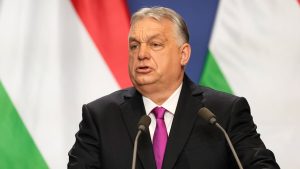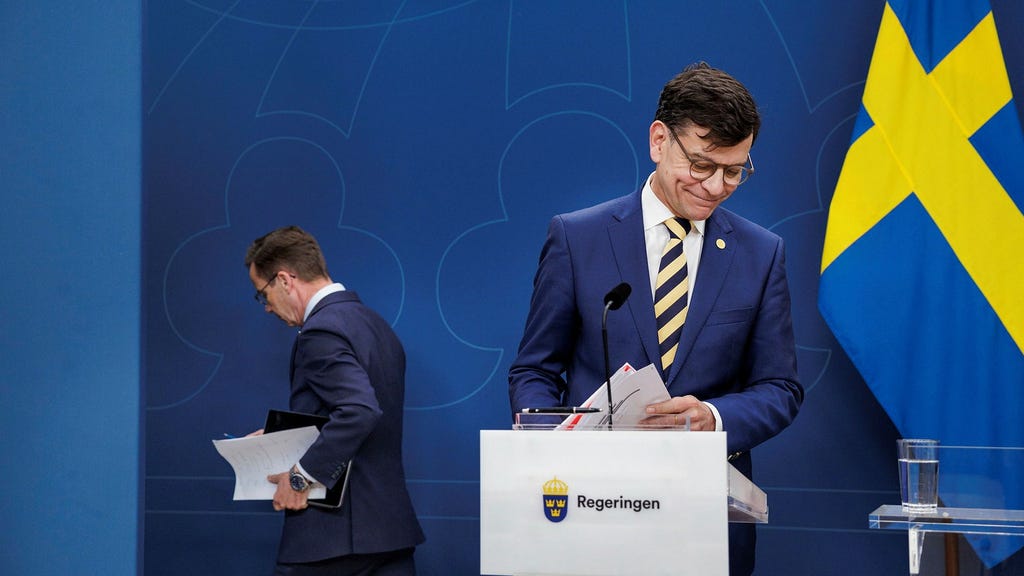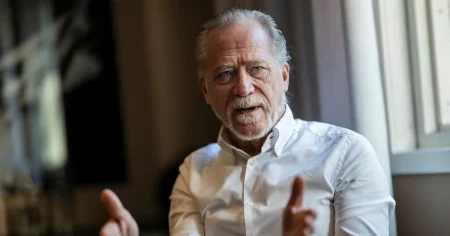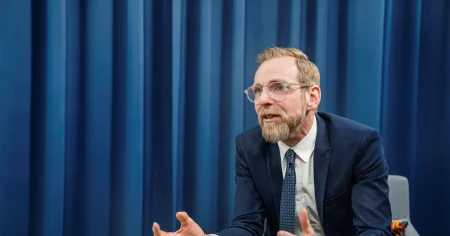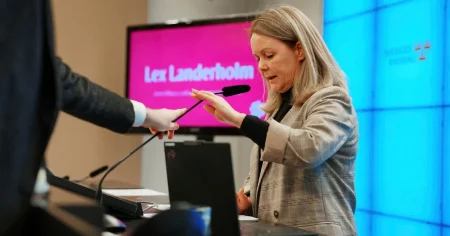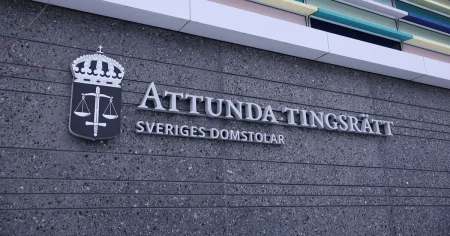The appointment of Henrik Landerholm as Sweden’s first national security advisor in the autumn of 2022 marked a significant development in the country’s security apparatus. Tasked with advising the Prime Minister on foreign and security policy, Landerholm assumed a position of immense responsibility, overseeing a substantial staff of approximately 70 individuals. However, his tenure quickly became embroiled in controversy, marred by a series of security lapses and questionable practices that raised serious concerns about his judgment and adherence to protocol. These incidents, unveiled by investigative journalism, cast a long shadow over his role and prompted calls for scrutiny from opposition figures and the public alike.
The initial revelation centered on Landerholm’s hiring practices. In December 2022, reports surfaced that he had personally selected an individual for a position within his office, bypassing the mandatory security vetting process. This action, potentially in violation of security protection laws, sparked immediate criticism. While the government maintained that all regulations were followed, experts disputed this claim, highlighting the potential risks associated with circumventing established security procedures. This controversy underscored the importance of rigorous vetting processes for individuals handling sensitive information within the national security apparatus. The incident also raised questions about Landerholm’s understanding of and commitment to adhering to established security protocols.
Further scrutiny of Landerholm’s conduct revealed a pattern of personal security breaches. In late 2022, he reportedly left his mobile phone at the Hungarian embassy following a dinner, where it allegedly remained overnight. This incident, while potentially attributable to simple oversight, nonetheless raised concerns given the sensitive nature of his position and the information accessible via his device. A subsequent incident involved leaving a notebook at Sveriges Radio in January 2023. These repeated lapses, even if unintentional, suggested a concerning lack of vigilance regarding the security of potentially sensitive information. The accumulation of these incidents began to paint a picture of carelessness that was difficult to reconcile with the demands of his high-security role.
Adding to the mounting concerns, Landerholm admitted to leaving ”a document” in a locked cabinet at the Gällöfsta conference center in early 2023. While he claimed the document was retrieved by a staff member and that he informed the Government Offices’ security department, the incident further eroded public confidence in his ability to maintain security protocols. The revelation that the forgotten items at Gällöfsta actually consisted of four classified documents, at least one of which was deemed detrimental to national security if compromised, significantly escalated the gravity of the situation. This incident was no longer simply a matter of carelessness; it represented a potential breach of national security. The discovery that the documents were found by cleaning staff, thereby potentially exposing classified information, further compounded the severity of the breach.
The repeated security lapses surrounding Landerholm prompted calls for greater accountability and transparency. Peter Hultqvist, Chairman of the Defence Committee, demanded that Prime Minister Ulf Kristersson appear before the committee to address the concerns raised by Landerholm’s actions. This request reflected the growing unease within the political sphere regarding the potential implications of these breaches and the perceived lack of adequate response from the government. The escalating pressure on the Prime Minister to address the situation directly highlighted the political ramifications of the controversy and the need to restore public confidence in the integrity of the national security apparatus.
The controversy surrounding Landerholm extended beyond security breaches to include questions about the use of public funds. Reports emerged alleging that he had used taxpayer money to partially fund private trips to visit his partner in Berlin. This allegation, if substantiated, would further damage his credibility and raise ethical questions about his conduct. The confluence of security lapses and allegations of misuse of public funds created a significant political challenge for the government. The unfolding saga underscored the importance of not only maintaining robust security protocols but also ensuring transparency and accountability in the use of public resources, particularly within sensitive positions like that of the national security advisor. The cumulative effect of these incidents painted a picture of an individual struggling to maintain the rigorous standards required of his position, raising serious questions about his suitability for the role and the government’s response to the unfolding crisis.




